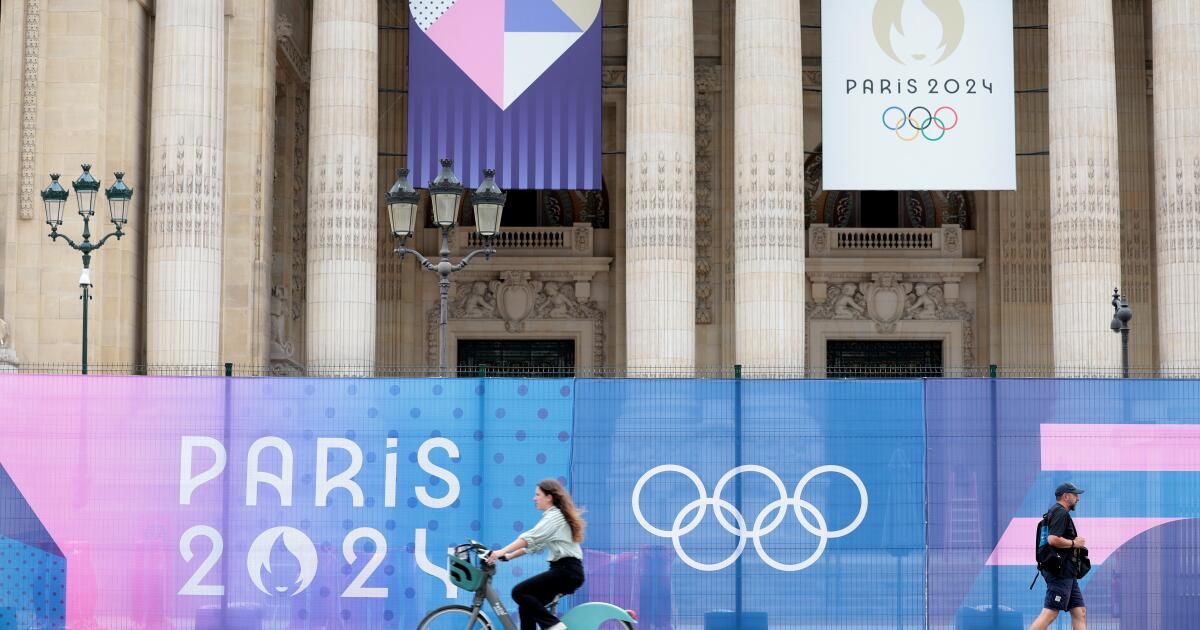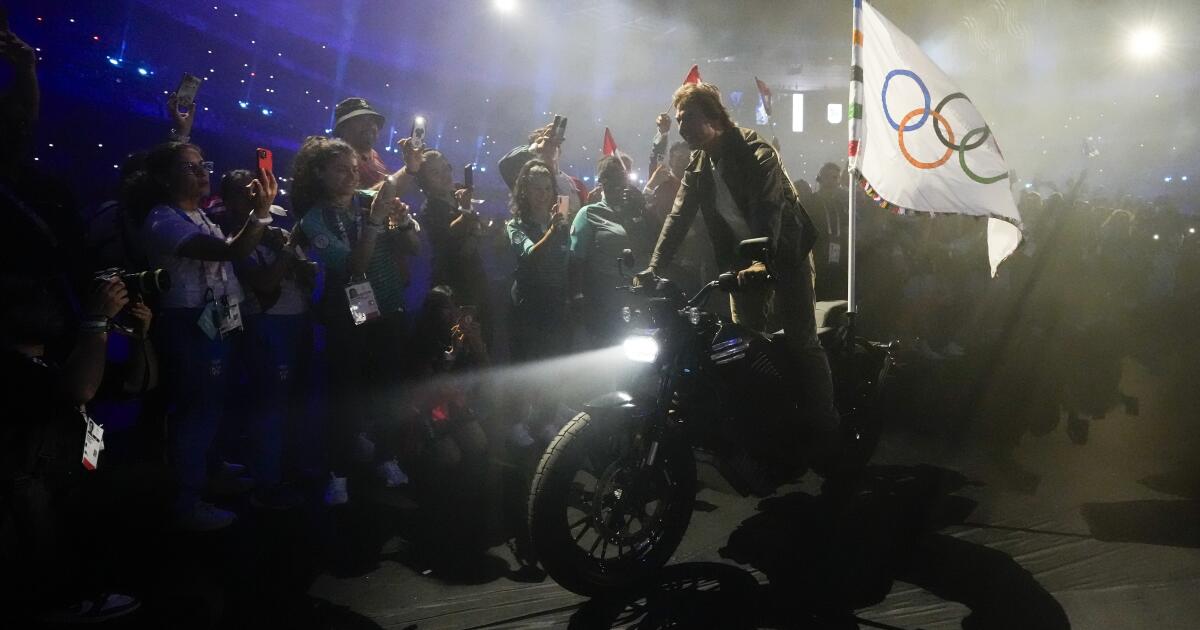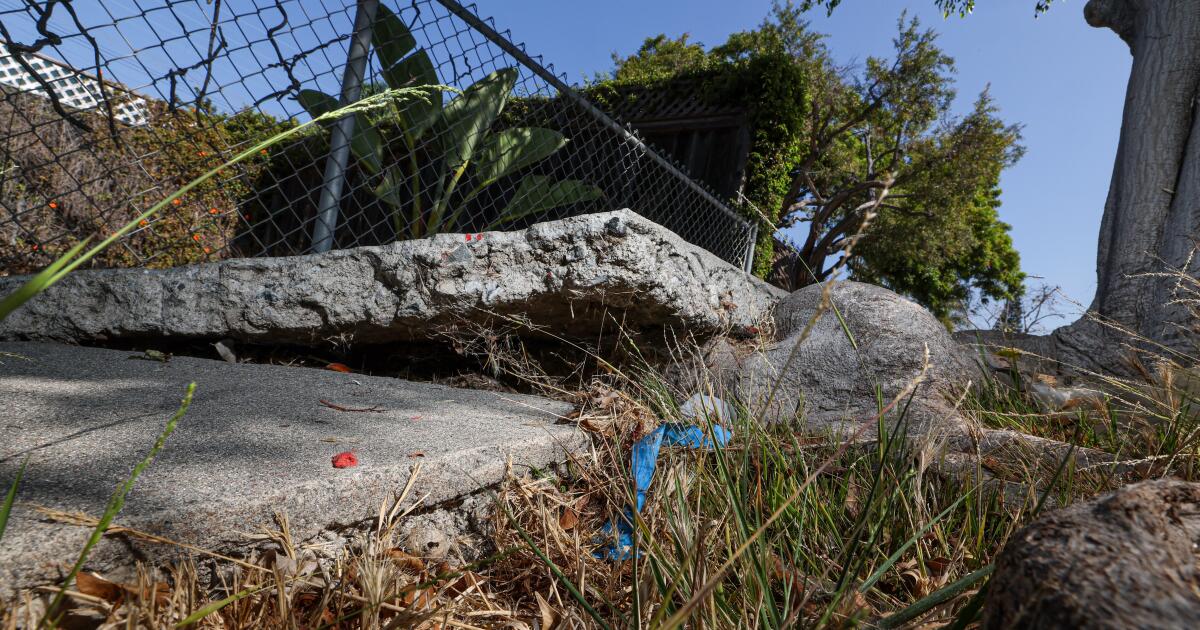Organizers of the Paris Olympics, which opened Friday, have done many things right in their efforts to make the 2024 Summer Games the greenest in history.
Instead of building new stadiums and existing sports venues, venues are being used and located as close to the Olympic Village as possible to reduce travel miles. Steps are being taken to reduce food waste and single-use plastics and to offer local and plant-based foods to reduce the carbon footprint of the Games.
One thing they did wrong, however, was expecting athletes not to have air conditioning in their rooms.
Instead of installing air conditioning to ensure the safety and comfort of the thousands of athletes staying in the Olympic Village, organizers planned to rely on a geothermal system that pipes cold water underground. But their assurances that the system was capable of keeping indoor temperatures about 11 degrees cooler than outside did not inspire much confidence during a year on track to be the hottest on record.
The plan has raised concerns in many countries, including the United States, that runners, gymnasts, swimmers and other athletes competing in the biggest competition of their lives would not get the rest and recovery they need to perform at their best when temperatures reach 27 to 32 degrees Celsius. As Matt Carroll of the Australian Olympic Committee said last year: “We’re not having a picnic.”
It is hard to think of anything more important than combating climate change, and conservation has a big role to play in that battle. But the organisers’ insistence on an air-conditioned-free Olympics was unnecessarily austere and short-sighted – a case of good intentions gone too far. And it is an odd position, given that France has a low-carbon electricity grid because most of its power comes from nuclear energy, as well as its experience with devastating heatwaves, such as those that killed 5,000 people last summer and in 2003.
In the run-up to the Games, French authorities were adamant in their view that air conditioning would be unnecessary and unacceptable because of the impact of energy consumption on the climate. “I have a lot of respect for the comfort of the athletes, but I think much more about the survival of humanity,” Paris Mayor Anne Hidalgo told a French radio station last year.
In view of the high temperatures predicted for July and August, the United States, Canada, Australia, Japan and other rich countries decided to provide portable air conditioners for their athletes. This raised questions about equity, as poorer countries might not be able to afford air conditioners and their athletes could be at a disadvantage by sleeping in higher temperatures.
In the end, the organizers' plans to save energy were to not provide air conditioning. evaporated With a commitment that allowed teams to order thousands of air conditioners and bring them to the Olympic Village at their own expense, let's hope they can sleep better and recover properly.
The lack of air conditioning is not the only environmental concern that has been raised about the comfort and safety of Olympic competitors. It remains to be seen whether the polluted Siena River It will be safe for athletes to swim there. And many athletes are not happy with the return of those recyclable cardboard beds that were used in Tokyo.
In Europe, opinions about air conditioning are very different from those in the United States. Few French homes are equipped with air conditioning, and in recent years France has attempted to crack down on excessive use of it, including fines aimed at forcing stores with air conditioning to keep their doors closed to prevent cold air from escaping. It's a stark contrast to the United States, where offices, malls and movie theaters are often exposed to frigid levels of air conditioning. That's not something everyone can aspire to, either.
But there is the alarming reality of how much the climate has changed. Annual temperatures in Paris have risen by more than 3 degrees since it last hosted the Olympics in 1924, according to a report a group of climate scientists and athletes released ahead of the Games. warned about the dangers Extreme heat means a challenge for competitors.
Addressing a crisis like climate change requires doing many things at once, such as helping people cope with extreme heat and reducing consumption of fossil fuels that cause global warming. But one thing cannot be ignored in favor of the other.
We hope that future Olympic Games, including the 2028 Summer Games in Los Angeles, will strike the right balance by expanding on Paris’ commitment to sustainability and climate action, but without becoming so doctrinaire that efforts become counterproductive.
Instead of taking small, symbolic steps, such as denying athletes adequate accommodation, host countries should use the global spotlight to make significant, long-term commitments to reduce fossil fuel consumption. The sooner that happens, the sooner Olympic athletes and everyone else can use air conditioning as much as they need without any regrets.











